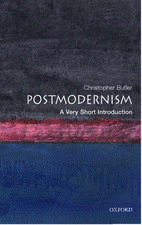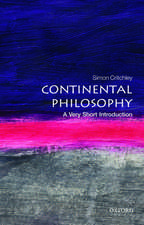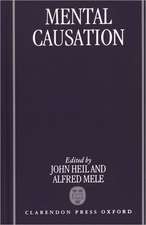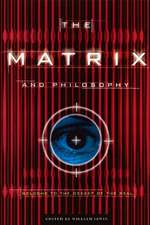The Anatomy of Inquiry (Routledge Revivals): Philosophical Studies in the Theory of Science: Routledge Revivals
Autor Israel Scheffleren Limba Engleză Hardback – 7 noi 2013
Din seria Routledge Revivals
- 9%
 Preț: 801.69 lei
Preț: 801.69 lei - 8%
 Preț: 432.15 lei
Preț: 432.15 lei -
 Preț: 153.81 lei
Preț: 153.81 lei -
 Preț: 230.80 lei
Preț: 230.80 lei -
 Preț: 294.72 lei
Preț: 294.72 lei -
 Preț: 258.72 lei
Preț: 258.72 lei - 9%
 Preț: 764.34 lei
Preț: 764.34 lei - 9%
 Preț: 903.41 lei
Preț: 903.41 lei -
 Preț: 296.10 lei
Preț: 296.10 lei -
 Preț: 342.36 lei
Preț: 342.36 lei - 9%
 Preț: 606.35 lei
Preț: 606.35 lei -
 Preț: 317.54 lei
Preț: 317.54 lei - 9%
 Preț: 764.28 lei
Preț: 764.28 lei -
 Preț: 257.00 lei
Preț: 257.00 lei -
 Preț: 238.40 lei
Preț: 238.40 lei -
 Preț: 259.47 lei
Preț: 259.47 lei - 9%
 Preț: 903.80 lei
Preț: 903.80 lei -
 Preț: 326.26 lei
Preț: 326.26 lei -
 Preț: 258.66 lei
Preț: 258.66 lei -
 Preț: 294.97 lei
Preț: 294.97 lei -
 Preț: 308.89 lei
Preț: 308.89 lei -
 Preț: 199.85 lei
Preț: 199.85 lei -
 Preț: 347.49 lei
Preț: 347.49 lei -
 Preț: 295.04 lei
Preț: 295.04 lei -
 Preț: 389.39 lei
Preț: 389.39 lei -
 Preț: 257.00 lei
Preț: 257.00 lei -
 Preț: 343.21 lei
Preț: 343.21 lei - 9%
 Preț: 640.90 lei
Preț: 640.90 lei - 9%
 Preț: 619.48 lei
Preț: 619.48 lei -
 Preț: 228.88 lei
Preț: 228.88 lei -
 Preț: 257.67 lei
Preț: 257.67 lei -
 Preț: 245.10 lei
Preț: 245.10 lei -
 Preț: 258.52 lei
Preț: 258.52 lei -
 Preț: 258.72 lei
Preț: 258.72 lei -
 Preț: 368.93 lei
Preț: 368.93 lei -
 Preț: 246.37 lei
Preț: 246.37 lei - 9%
 Preț: 832.07 lei
Preț: 832.07 lei -
 Preț: 258.66 lei
Preț: 258.66 lei -
 Preț: 286.98 lei
Preț: 286.98 lei - 18%
 Preț: 695.85 lei
Preț: 695.85 lei - 9%
 Preț: 934.94 lei
Preț: 934.94 lei - 5%
 Preț: 231.22 lei
Preț: 231.22 lei -
 Preț: 267.15 lei
Preț: 267.15 lei -
 Preț: 200.66 lei
Preț: 200.66 lei - 9%
 Preț: 638.61 lei
Preț: 638.61 lei -
 Preț: 259.68 lei
Preț: 259.68 lei - 9%
 Preț: 1038.45 lei
Preț: 1038.45 lei -
 Preț: 389.43 lei
Preț: 389.43 lei -
 Preț: 302.13 lei
Preț: 302.13 lei -
 Preț: 302.25 lei
Preț: 302.25 lei
Preț: 849.32 lei
Preț vechi: 1035.76 lei
-18% Nou
Puncte Express: 1274
Preț estimativ în valută:
162.51€ • 170.14$ • 134.47£
162.51€ • 170.14$ • 134.47£
Carte tipărită la comandă
Livrare economică 07-21 aprilie
Preluare comenzi: 021 569.72.76
Specificații
ISBN-13: 9780415739610
ISBN-10: 0415739616
Pagini: 352
Dimensiuni: 138 x 216 mm
Greutate: 0.81 kg
Ediția:1
Editura: Taylor & Francis
Colecția Routledge
Seria Routledge Revivals
Locul publicării:Oxford, United Kingdom
ISBN-10: 0415739616
Pagini: 352
Dimensiuni: 138 x 216 mm
Greutate: 0.81 kg
Ediția:1
Editura: Taylor & Francis
Colecția Routledge
Seria Routledge Revivals
Locul publicării:Oxford, United Kingdom
Public țintă
Postgraduate and UndergraduateCuprins
Introduction: Philosophy and the Theory of Science 1. Approaches to the Philosophy of Science 2. Arguments of a Theory of Science 3. Approach to the Problems; Part I: Explanation 1. The Humean Background 2. The Deductive Pattern of Explanation 3. Statistical and Confirmational Generalization 4, The Structural Divergence of Explanation and Prediction 5. The Centrality of Explanation and Prediction 6. The Problem of Ontological Interpretation 7. Explanation of Psychological and Historical Events 8. Teleological Explanation: Beliefs and Desires 9. Teleological Explanation: Self-regulating Behavior; Part II: Significance 1. Explanation and Criteria of Significance 2. Conditions of Adequacy for Defining and Criterion 3. Criteria Based on Complete Verifiability or Falsifiability 4. Falsifiability as Criterion of Significance and as Criterion of Demarcation 5. Criteria of Incomplete Verifiability 6. Criteria of Translatability 7. Inclusion in an Empiricist Language 8. Disposition Terms, Observational Predicates, and Observable Elements 9. The Interpretation of Disposition Terms 10. The Method of Reduction Sentences 11. The Problem of Theoretical Terms 12. The Problem of Function and the Problem of Interpretation 13. Approaches to the problem of Interpretation: Pragmatism and Fictionalism 14. Pragmatism 15. Fictionalism and Its Varieties 16. Instrumentalistic Fictionalism 17. Empiricism, Pragmatism, and Instrumentalism 18. Eliminative Fictionalism 19. Eliminative Fictionalism: Syntactical Form 20. Eliminative Fictionalism: Craigian Form 21. Eliminative Fictionalism: Ramseyan Form; Part III: Confirmation 1. Explanation, Significance, and Confirmation 2. Hume’s Challenge and the Generalization Formula 3. Hempel’s Study of Qualitative Confirmation 4. Critical Discussion of the Satisfaction Criterion 5. The Paradoxes of Confirmation: Hempel’s Treatment 6. Further Discussions of the Paradoxes of Confirmation 7. Positive Instances and the Generalization Formula 8. Induction and Projectibility 9. Goodman’s Proposal on Induction 10. Reflections on the Justification of Induction; Bibliography; Index
Descriere
First published in 1963, this title considers the philosophical problems encountered when attempting to provide a clear and general explanation of scientific principles, and the basic confrontation between such principles and experience. Beginning with a detailed introduction that considers various approaches to the philosophy and theory of science, Israel Scheffler then divides his study into three key sections that explore how these complex issues involved have been dealt with in contemporary research.


















